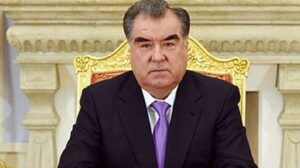Russian aviation industry is isolated as Boeing suspends parts, maintenance

Russian aviation industry is isolated as Boeing suspends parts, maintenance.
TGO: American plane maker Boeing said it would suspend parts, maintenance and technical support for Russian airlines due to the effects of sanctions amid Russia’s invasion of Ukraine spread. across the global aviation industry.
The United States said it would follow the European Union and Canada in banning Russian flights from their airspace, in a move likely to trigger Russian retaliation.
Boeing’s announcement late Tuesday comes as aircraft and engine manufacturers, lessors and maintenance, repair and overhaul (MRO) suppliers have to deal with Russian customers. faced numerous EU and US bans, including on leasing aircraft, exporting new aircraft and supplying spare parts.
There are also potential payment difficulties after some Russian banks were banned from participating in the SWIFT international payment system.
The new sanctions isolate Russia’s aviation sector in a similar way to Iran and North Korea but will have far greater consequences due to the larger Russian market size and heavy reliance on suppliers. Western level in recent years.
According to aviation consulting firm IBA, Russia will account for about 6% of global air freight capacity in 2021, up from about 4% in 2019 due to the relatively strong performance of the domestic market during the era of globalization. Translate.
Domestic capacity last year was higher than pre-pandemic levels, and Russian carriers are seen as more reliable performers on jet leases at a time when many Southeast Asian airlines are on pause. pay or return the plane due to financial difficulties.
Some 515 Russian jets with an estimated market value of around $10 billion are leased from foreign companies, according to analytics firm Cirium.
Lessors have until March 28 to end their contracts under EU sanctions, but industry executives have expressed concern about whether Russian airlines will comply with orders to return the planes. or not.
Peter Walter, director of engineering and asset management at IBA, said he expected the ban on the supply of spare parts to also have a major impact on Russian industry, as has happened in Iran before.
“Because parts are limited, we will see planes on the ground in Russia being hijacked to keep the rest of the fleet operational,” he said during a webinar on Tuesday.
Russia has domestic MRO facilities, but carriers have also cut contracts with foreign companies. Last year, Aeroflot signed a long-term agreement with Hong Kong Aircraft Engineering Company (HAECO) to repair and overhaul parts.
HAECO did not immediately respond to a request for comment on Wednesday on whether the sanctions would affect the contract.
Russia’s difficulties in sourcing spare parts can also affect international airlines that fly to Russia and can sometimes require replacement parts at the destination.
Flydubai, which currently operates a fleet of 737s to eight Russian cities, said on Wednesday that it was aware of Boeing’s announcement and was monitoring the situation.
Russian airlines will also be banned from accepting new planes ordered by Western manufacturers, dealing a blow to Airbus and Boeing.
IBA data shows that Russian airlines have 62 aircraft on order with the two manufacturers, including 25 Boeing 737 MAX planes to be delivered to Utair this year.
Russia is the only major country where the 737 MAX hasn’t been re-licensed after three years of being out of service following two deadly crashes.


